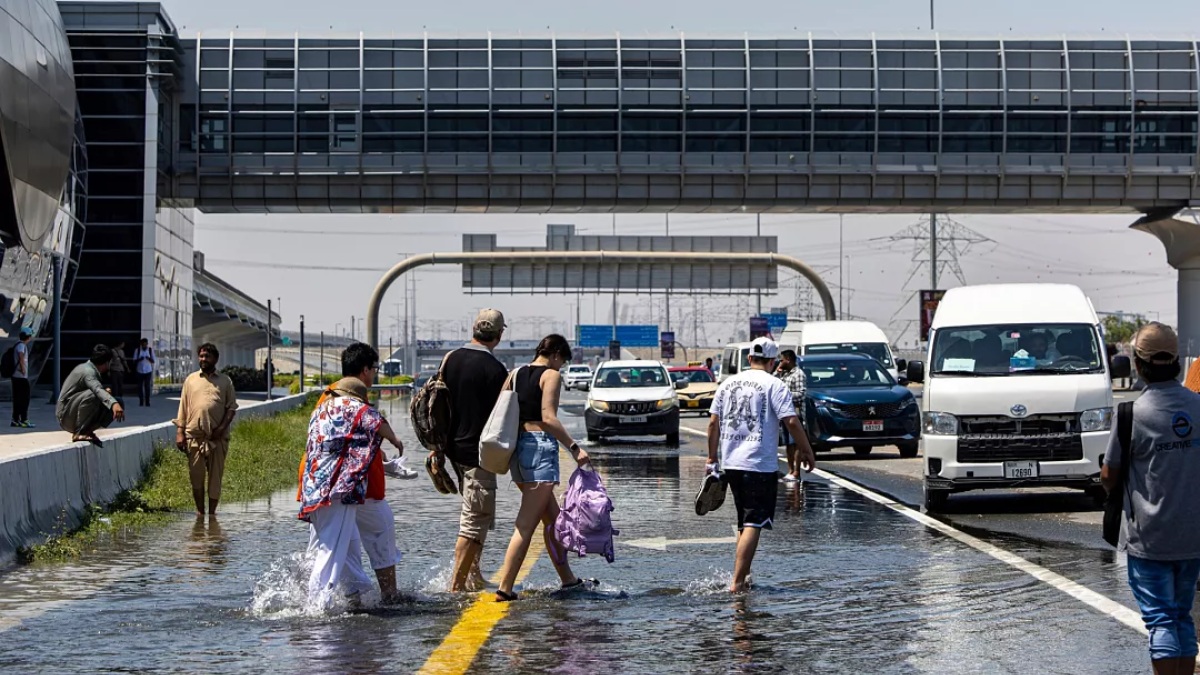Experts have warned that the intense rainfall and flooding that affected parts of the UAE last April could reoccur, with future rainfall expected to increase by up to 30% due to climate change. Dr. Mohammad Al Ebri, director of meteorology at the National Centre of Meteorology (NCM), shared insights during a recent discussion on natural disasters and crisis management, stating, “There will be between 20 to 30 per cent more rainfall in the future due to climate change.”
The NCM reported an exceptional rainfall average of 102mm this past April, far surpassing the 48.9mm recorded in April 2003. Dr. Al Ebri also projected a temperature rise of 1.7°C by the end of the century, which he said would contribute to more severe weather, including storms, heavy rain, and flooding.
During the event at the Dubai Police Officer’s Club, experts from multiple government bodies discussed how to improve preparedness and safeguard public safety. The UAE experienced its highest daily rainfall in 75 years earlier this year, prompting the formation of a special committee, which includes entities like Dubai Police, Dubai Civil Defence, and the Roads and Transport Authority, to develop solutions for future rainfall management.
Lieutenant General Dhahi Khalfan Tamim, deputy chief of police and public security in Dubai, stressed in a The National report the importance of proactive measures such as early warning systems and coordinated government efforts. “Early warning, community support, and collaboration can enhance our ability to manage heavy rainfall and protect lives and property,” he said in the report.
Heavy rains in mid-April disrupted transport, flooded streets and basements, and left people stranded in offices and metro stations. The NCM noted that the highest rainfall between April 14-17 was 259mm in Khitam Al Shiklah, Al Ain, while Dubai’s Al Marmoom recorded 219mm.
To mitigate future impacts, Mohammed Al Danhani from Dubai Municipality highlighted ongoing projects addressing key road points that are prone to flooding, stating, “About 90 per cent of these points were solved, and emergency pumps were installed to ensure smooth road movement.”
The committee’s recommendations include establishing a unified emergency phone line, improving first response systems, and educating the public on safety protocols during severe weather.






